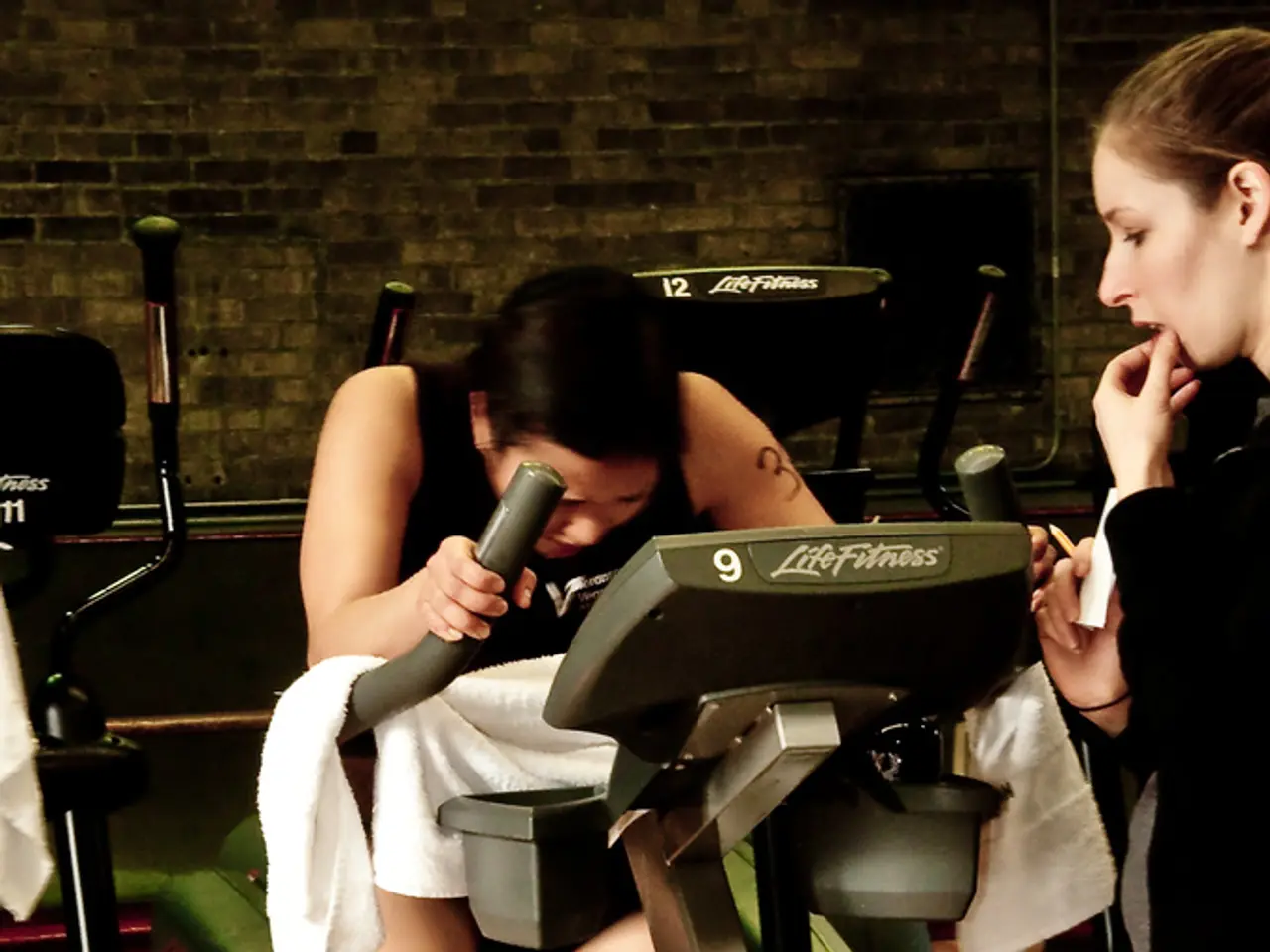Navigating through obstacles such as a complex labyrinth - strategies adopted by competitive female cyclists regarding menstruation
The much-anticipated Tour de France Femmes avec Zwift is set to kick off in France in just five days, with 154 of the world's best cyclists gearing up for the race. As the sporting world prepares for this historic event, a crucial aspect of female cyclists' preparation is gaining attention: the menstrual cycle.
Most riders preparing for the Tour will be somewhere along their menstrual cycle, and understanding its effects on performance and injury risk is becoming increasingly important. One rider, Monica Greenwood of Coop-Repsol, has experienced periods that were inconvenient before major races. However, her perspective changed after attending a UK Sport workshop.
Greenwood and her team recouped 400 days lost to injury and fatigue by considering the menstrual cycle in their training. Demi Vollering, a 2023 Tour winner, encourages women to understand and support their bodies during their menstrual cycle. Vollering emphasises the importance of adopting nutrition strategies tailored to each phase of the cycle to optimise performance and minimise injury risk.
During menstruation (period phase), increasing protein intake supports cellular repair since the body loses blood and associated nutrients. In the follicular phase (post-period, approximately 13-14 days), increasing carbohydrate intake replenishes energy stores and supports training as the body becomes more reliant on fuel reserves. During the luteal phase (pre-menstruation), energy levels usually drop, and mood changes can occur alongside cravings. It remains important to boost protein intake to help the body prepare for shedding the uterine lining.
Ensuring adequate energy availability throughout the cycle is also crucial to prevent menstrual dysfunction and reduce the risk of conditions such as Relative Energy Deficiency in Sport (RED-S), which negatively impacts performance, bone health, and injury risk. Addressing micronutrient needs, particularly iron (especially important during menstruation due to blood loss), is also essential.
Some women may explore seed cycling, a practice involving the consumption of different seeds at different stages of the menstrual cycle, to potentially help balance hormones. However, evidence for its effectiveness is limited and mostly anecdotal.
The natural functioning of women's bodies is still made to feel optional, illicit, secret, and subject to shaming. Period products are subject to VAT, reflecting the continued stigma surrounding menstruation. Limited research exists into women's reproductive problems like Polycystic Ovary Syndrome (PCOS), and there is a cultural silencing about the many different ways women experience periods. Some women with conditions like PCOS, endometriosis, or hypothalamic amenorrhoea may have unpredictable cycles.
Despite these challenges, riders are currently discussing the impact of the menstrual cycle on their training and performance. Greenwood found that women training today do not want to change their training around their menstrual cycle. Instead, they see it as a tool to work more closely with their bodies, rather than against them. Vollering encourages young riders to feel comfortable talking about the menstrual cycle with coaches.
Interestingly, increased levels of oestrogen in women's bodies make them less likely to experience muscle injuries than men. However, connective tissue in women becomes stiffer during times of increased oestrogen, making them more prone to injuries like anterior cruciate ligament (ACL) damage.
As the Tour de France Femmes avec Zwift approaches, it's clear that the conversation around periods and performance within bike racing and beyond is one significant step towards better understanding the benefits it can bring to race times and strength training. By embracing the menstrual cycle as a natural part of their training, female cyclists can optimise their performance and minimise injury risk, paving the way for a more inclusive and understanding sports world.
- During the Tour de France Femmes avec Zwift, understanding the impact of the menstrual cycle on performance and injury risk is gaining prominence, with riders like Monica Greenwood and Demi Vollering advocating for tailored nutrition strategies and open discussions about the menstrual cycle to optimize performance in sports.
- In sports, including cycling, acknowledging the menstrual cycle as a natural part of a female athlete's training can help minimize injury risk and improve performance, as highlighted by the increased focus on this topic ahead of the Tour de France Femmes avec Zwift.




